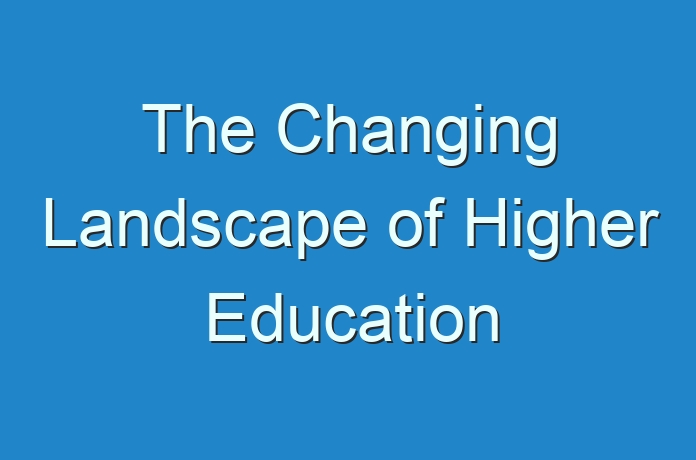
The disruptive forces are all set to transform the landscape of higher education. Since the prevailing model of higher education is too expensive to be leveraged by the general population and is completely contradictory in contrast to the current educational needs, educational leaders see this disruption as more of a source of innovation to improve and balance the education system.
With the help of adequate education management, higher education will be:
- Inexpensive
- Accessible
- Effective
Here’s how –
Countries like China, Malaysia, India, South Korea, and Singapore are expected to emerge as the new importers of higher education solutions confronting the international English-speaking, global advocates of expensive education solutions and student-importing countries like the USA and UK.
Thus, the leaders in the higher education landscape must find new and effective ways to cope up with this revolutionary shift.
In addition to this, even though the pandemic caused the sudden shutdown of educational institutions worldwide and various educational bodies were concerned about the reduction in interactivity & classroom dynamics, the students and teachers eventually seemed to adapt quickly and easily to the forced experimentation of online education.
Because of which we are now witnessing unprecedented growth in the number of education systems leaning towards digitalization and customization. This leads us to the conclusion that the new patterns in our learning and teaching methods may become our new normal.
Likewise, our education solutions and the role of educators in this era of disruption must be reshaped and evolved following the digital reformation and educational needs of students.
What will be the future of higher education?
Breaking the discriminatory barriers
As many top institutions are deploying technology in their academic systems to create fully online education solutions, we can expect that this disruption will be breaking the wealth and racial barriers in our education systems making higher education accessible and affordable for all.
Most of our elite universities offer facilities like student centers, enormous playgrounds, or imperial dining halls that only add to the cost and make a negligible difference in improving the quality of education. The overpriced higher education solutions and discriminatory policies must be eliminated to ensure educational equity globally.
Development of new & innovative education systems
In the near future, these traditional models of education will be questioned based on the value they add to the education landscape. Universities and schools must prepare themselves for the awaiting disruption or they could be challenged by businesses who are stepping into the education sector with new innovative and technologically-driven ideas.
This is the reason why the leading universities must develop new and innovative education systems that are focused on expanding the accessibility of education across the globe.
Rise in on-demand and consumer-based education systems
Besides, personalization in academics over the universal ‘One-size-fits-all’ approach can be considered as the most suitable maxim to define the future of higher education. The disruption is heading us toward an arena where students will have the ability to design their customized curriculum based on their goals to develop their competencies. In a nutshell, the on-demand and consumer-based shift in education managementwill enable educators to create a wide range of choices, intensified interaction, and a customized academic system.
Wrapping Up
If we look deeper into our existing capacity of delivering education and the on-demand capacity, we can get a clear idea of how online education can improve the availability of education. Online models of education can eradicate the educational disparities and overreliance on educational models on businesses. This change won’t happen overnight, but starting today can only make us closer to a world where everyone gets the right to access education.





